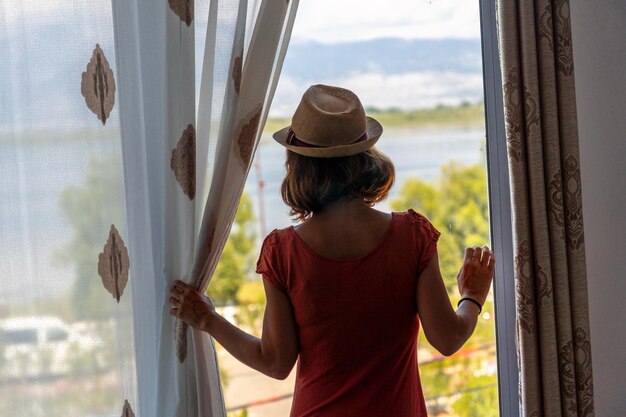Stay Malaria-Free: Practical Steps to Protect Yourself and Your Community
In the world of infectious diseases, malaria is a formidable foe. This mosquito-borne illness affects millions globally, but the good news is that malaria is preventable. Armed with the right knowledge and strategies, you can protect yourself and your loved ones from this potentially severe disease. Whether you're planning travel to an area where malaria is prevalent or you live in such a region, understanding how to prevent malaria is crucial. Let’s dive into practical approaches that not only keep you safe but also contribute to broader public health efforts.
Understanding Malaria: The Basics
Before exploring prevention strategies, it's essential to grasp what malaria is. Malaria is a disease caused by the Plasmodium parasite, transmitted through the bites of infected female Anopheles mosquitoes. The disease is most widespread in tropical and subtropical regions, particularly sub-Saharan Africa, parts of Asia, and Latin America. Knowing the basics of malaria transmission helps in understanding why certain prevention measures are necessary.
Symptoms and Risks
While prevention is the focus, recognizing symptoms can aid in early intervention. Malaria symptoms typically include fever, chills, headache, and muscle aches. If untreated, malaria can lead to severe complications and even be fatal. The risk of developing severe cases is higher in certain groups, including pregnant women, young children, and travelers from non-endemic areas.
Personal Protection: Keeping Mosquitoes at Bay
One of the primary ways to prevent malaria is to reduce mosquito bites. Here are practical steps you can take:
1. Use Insect Repellents 🦟
Applying insect repellent on exposed skin is a frontline defense.
- Choose the right repellent: Look for products containing DEET, picaridin, or oil of lemon eucalyptus.
- Application tips: Follow the instructions on the package, applying it to all exposed skin.
2. Sleep Under Mosquito Nets 🛌
- Insecticide-treated nets (ITNs): These are effective in killing mosquitoes that carry malaria. Ensure the net is in good condition, with no holes.
- Usage guidance: Tuck in the net properly and make sure it reaches the ground or is tucked under the mattress.
3. Wear Protective Clothing 👕
Clothing can be your first line of defense:
- Long sleeves and pants: Opt for light-colored clothing to deter mosquitoes.
- Treat clothing: For enhanced protection, use permethrin-treated clothes.
Environmental Strategies: Make Your Surroundings Unfriendly to Mosquitoes
4. Eliminate Breeding Sites 🌿
Mosquitoes breed in standing water. Reducing breeding grounds is a community effort:
- Drain water from containers: Regularly empty flower pots, gutters, and other containers.
- Community involvement: Encourage neighborhood clean-up campaigns.
5. Install Screens and Barriers 🚪
- Screens on windows and doors: Ensure they are intact to keep mosquitoes out.
- Air conditioning: Using air conditioning can also reduce the likelihood of mosquito bites indoors.
Medication and Vaccination: Additional Layers of Protection
One critical component of malaria prevention is prophylactic medication. These medications are not vaccines but are effective in preventing the development of malaria after being bitten by an infected mosquito.
6. Chemoprophylaxis 💊
- Prophylactic medications: If traveling to a malaria-endemic area, consult a healthcare provider about starting a prophylactic drug regimen tailored to the specific region.
- Adherence: It's crucial to follow the dosage schedule before, during, and after travel.
7. Latest Advances: The Malaria Vaccine 💉
While still a developing field, vaccines are increasingly part of the malaria prevention strategy.
- RTS,S vaccine: This is the first vaccine to show partial protection against malaria in young children.
- Consult healthcare providers: Availability and appropriateness depend on regional health policies and personal health status.
Community and Global Initiatives
While personal prevention is vital, community efforts are pivotal for controlling and eventually eradicating malaria.
8. Public Health Campaigns 🌐
- Education and awareness: Programs that educate communities about malaria prevention and treatment are essential.
- Government and NGO programs: Support and participation in local initiatives can amplify impact.
9. Participate in Research and Reporting 📊
- Contribute to data collection: Reporting cases to local health departments can aid in tracking and responding to outbreaks.
- Support research initiatives: Various organizations work towards developing better prevention and treatment methods; supporting these can make a big difference.
Practical Tips and Commitment to Action
You don't have to be a global health expert to make a significant impact on malaria prevention. Here's a quick guide to keeping yourself and your community safe:
- Be prepared: If traveling, research malaria prevalence in destination areas.
- Stay informed: Keep abreast of local guidelines and emerging research.
- Engage locally: Join or initiate community efforts against mosquito breeding and malaria awareness.
- Advocate for policy: Support policies that aim to improve sanitation and provide insecticide-treated nets and medications.
Preventing malaria involves both individual and community actions. From personal protective measures like using repellents and nets to participating in broader societal initiatives, each step contributes to a holistic approach to combating this disease. By staying informed and proactive, you play a crucial role in the global fight against malaria.
Quick Guide to Malaria Prevention 🛡️
- Use Repellents: Apply DEET-based repellents on exposed skin.
- Sleep Under Nets: Use insecticide-treated mosquito nets.
- Wear Long Clothing: Opt for long sleeves and treat clothes with permethrin.
- Drain Water: Eliminate mosquito breeding sites by draining standing water.
- Install Screens: Keep mosquitoes out with screens and air conditioning.
- Take Medication: Follow prophylactic medication regimens if traveling to risk areas.
- Consider Vaccination: Consult healthcare providers about vaccine options.
- Get Involved: Engage in community and public health efforts to combat malaria.
By integrating these tips into your lifestyle, you contribute significantly to the prevention of malaria both individually and collectively. Stay safe, be proactive, and educate others to join the fight against malaria. 🌍

